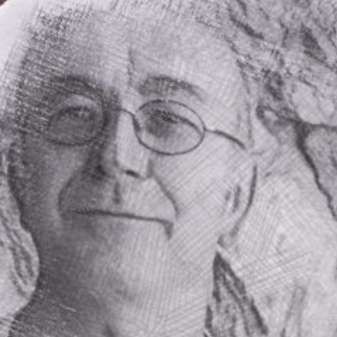This second Edinburgh Quartet Late Session exploring the quartets of James MacMillan saw a return to the steeply raked Anatomy Theatre of Summerhall. A small venue of exclusively hard surfaces, it not only boasts an excellent string quartet acoustic, but is ideal for intimate exploration of the music such as takes place at these events. Whereas the first of the series featured a Q&A with MacMillan and the Edinburgh Quartet, this event concentrated more on illustrated exploration of the content of the programme's two works. Themes and their treatment were discussed in some detail and I was transported back to happy days at music college.
The first, and by far the more brief work at around four minutes, was MacMillan’s 1994 Memento, written in memory of a friend and premièred in New York by the Kronos Quartet. Its haunting opening features the pentatonic Gaelic psalm style of which MacMillan is so fond. The music’s keening nature is aided by tonal ambiguity. Like many pentatonic moments it seems unclear whether the piece is major or minor.
The Edinburgh Quartet’s pacing of the introductory bars was captivating. In the imitative opening seconds, when the pitch of all four instruments was very close, there was great delicacy and restraint. In what might be considered the second phrase, the pitch range and dynamics opened out nicely. Finally, when the range is sufficiently wide for the cello to occupy what many would consider its normal territory, there is a moment which suggested to me, not normality, but the almost extra-terrestrial atmosphere of late Beethoven. In the hands of a lesser composer or quartet this moment might have blossomed into a rich-toned, dynamic but predictable conclusion to the opening. However, bearing in mind the work's provenance, there seemed here to be a dignified composure.
With regard to ensemble skills it’s worth noting that this piece contains little in the way of pulse. While this can create a calmingly meditative ambience in which listeners can reside, it demands heightened concentration from the players unless, as I suspect was the case here, they simply feel the piece in the same way. One lovely touch, beautifully handled here, was the use of descending glissandi. In addition to contributing to the work's mournful spirit they also, given the Gaelic Western Isles associations, reminded me of the cry of distant herring gulls. This struck me as poetic in a memento to a departing friend.
Four or five times the length of the opening work, MacMillan’s 1998 Why Is This Night Different? was explored at considerable length in the hope that listeners, especially those hearing the work for the first time, might understand and enjoy it all the more.
Second violinist Gordon Bragg began by addressing the oddly worded title, not only the questioning nature but the childlike wording. The night in question is Passover and the childlike element, represented musically in a three-note theme, refers as much to the idea of the children of Israel as to an individual child enquiring of parents as to history and tradition. The three-note theme was played in some of its many guises. Interestingly, it first appears not as a principal motif, but as accompaniment to a theme in the first violin. This mostly pentatonic, almost blues-like theme was quoted by first violinist Tristan Gurney. There was far more tension here than in Memento, as the theme, beautifully rendered by Gurney, strayed out of its harmonic safety zone with notes outside the accompanying harmony. It sounded like it was testing its own balance and, to my ears, matched perfectly those questioning moments where answers do not necessarily bring comfort.
MacMillan’s fondness for exploring extremes results in this theme being pitted against very contrasting and, in some cases, quite violent music. The energy of the Edinburgh Quartet in these moments was impressive. In one striking example, Gurney and Bragg’s soaring but desperate-sounding melody was underpinned, or perhaps more accurately, pursued by Jessica Beeston and Mark Bailey’s hacking viola and cello parts.
Like Memento this work features glissandi. Coupled with harmonics, these moments were quite otherworldly, particularly when all four players employed this technique.
Much of the melodic work was given over to viola and, at one point, Beeston’s lyrical playing was nicely offset by Gordon Bragg's dolefully descending glissandi. The “howling wolf” nature of much of the writing, suggesting variously blues, raga, Gaelic Psalm seems to place MacMillan simultaneously as a Scottish composer and a responsive citizen of the musical world at large.
As the subject matter might suggest, the piece more ebbs away than concludes and, following a pause, there was resounding acknowledgement of a fine performance.


